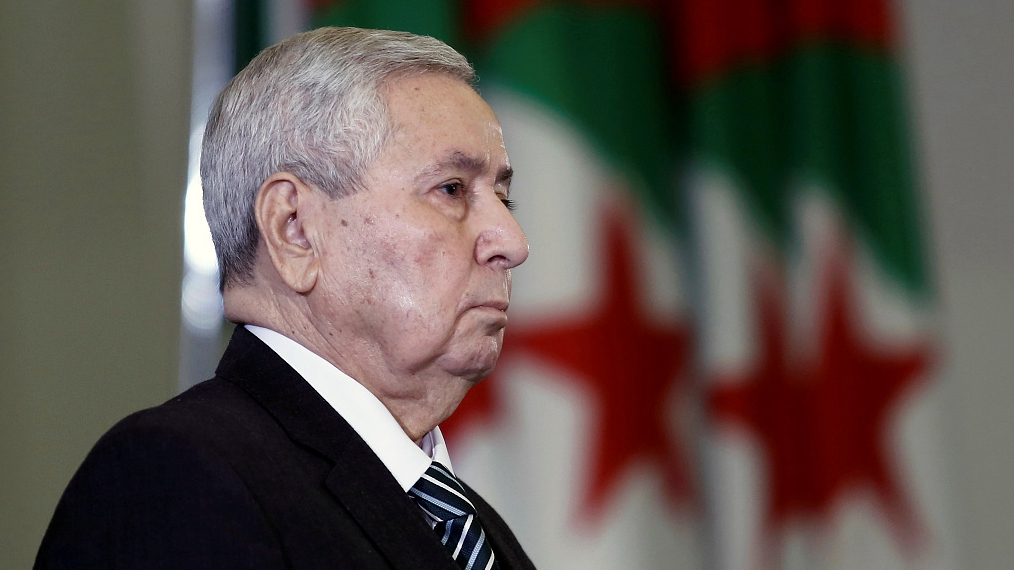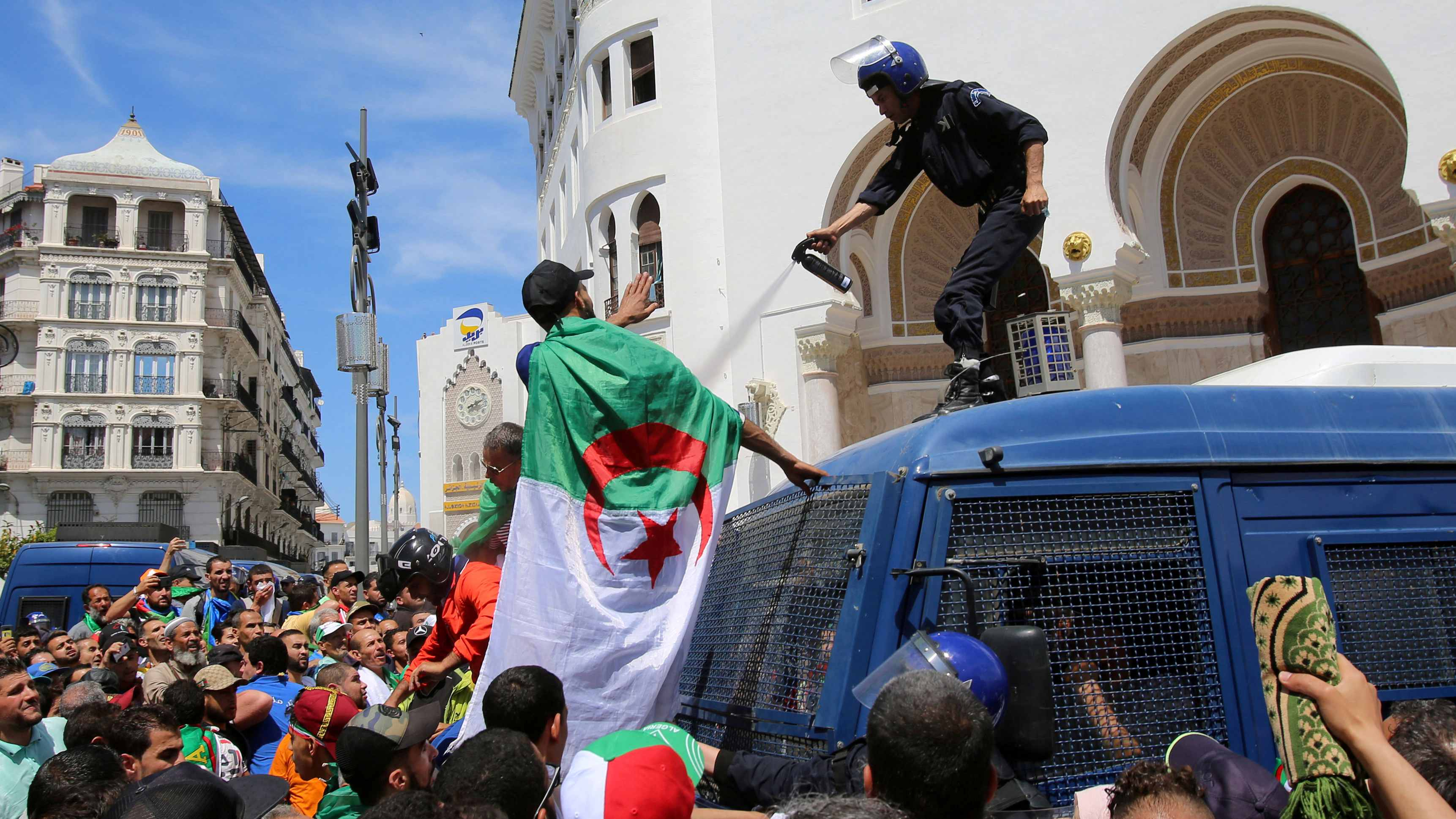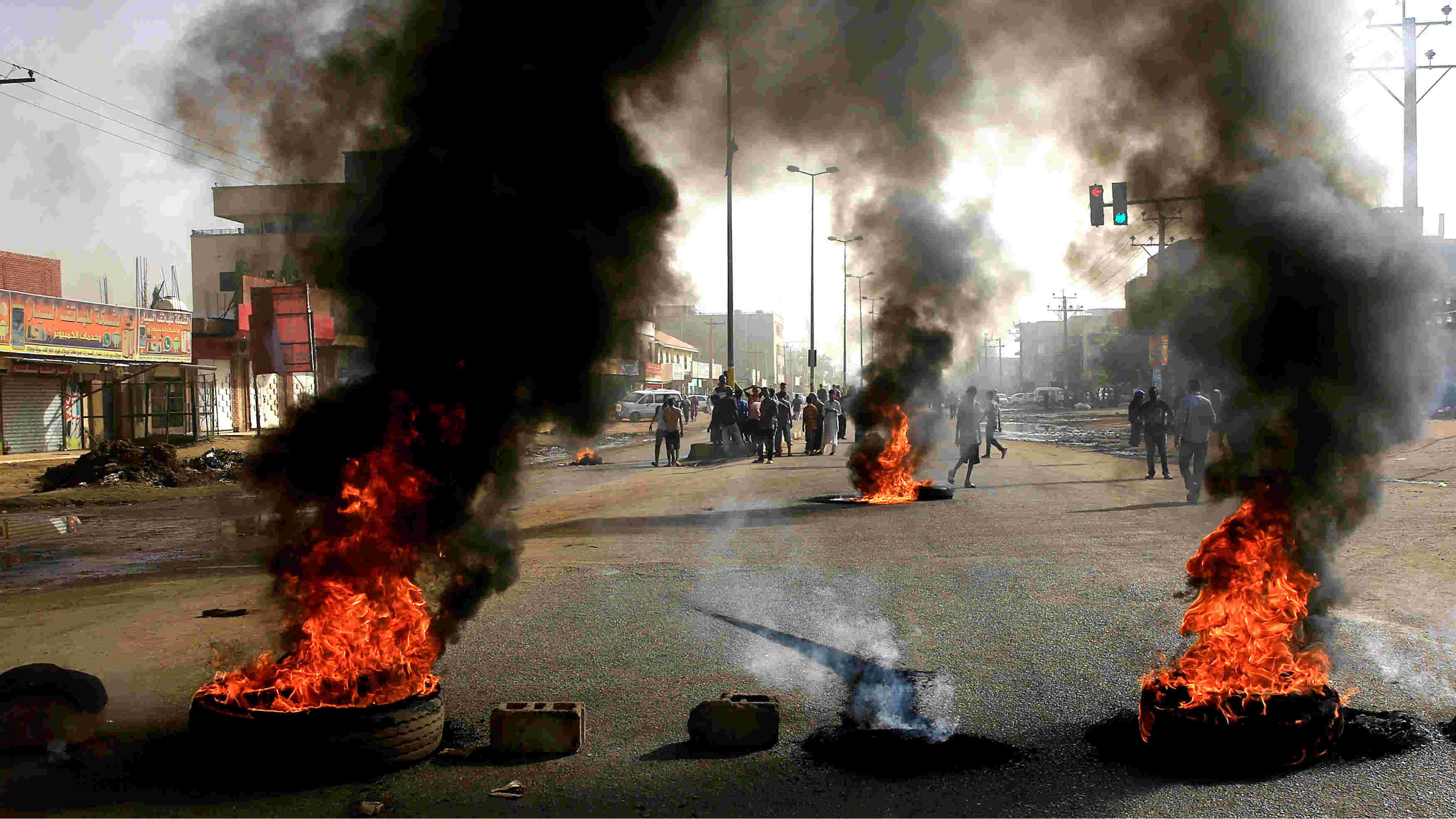
Opinion
21:14, 05-Jun-2019
The way ahead of the chaos in Algeria and Sudan
Guy Burton

Editor's note: Guy Burton is Visiting Fellow at the Middle East Centre under the London School of Economics and Adjunct Professor at Vesalius College, Brussels. His research interests are on the politics and international relations of the Middle East. The article reflects the author's opinion and not necessarily the views of CGTN.
Is politics returning to business as usual in North Africa? Since the start of the year, Algeria and Sudan have experienced large-scale protests, eventually leading to the removal of two long-serving leaders in April. Two months later, however, the demonstrations have continued, and there is little sign that the wider political leadership in either country show signs of moving on.
On June 2, the Algerian interim government abandoned a presidential election scheduled for July 4. The regime had bowed to public pressure and the fact that there were no viable candidates. Neither of the two who had put themselves forward had much public support or the required number of signatures.
The election was rescheduled after it was supposed to happen at the end of April. But when then-President Abdelaziz Bouteflika declared that he planned to stand again and extend his 20 years in office, protesters took to the streets in February and March. He eventually resigned on April 2.
The day after the Algerian authorities halted elections, on June 3, the Sudanese government used force to remove demonstrators from outside its military compound. Using live ammunition, troops killed at least 35 people. The attack is the latest stage of a story that has unfolded since December when protests began against the high cost of living and food prices. On April 11, President Omar al-Bashir was removed from his position.
For more optimistic observers, the departure of the two leaders was a welcome change to regional developments of the past few years. In 2011 demonstrations and peaceful protests swept the region, leading the removal of leaders in Tunisia and Egypt, before eventually halting as a result of armed uprisings and insurgencies.
In Libya and Syria outside powers intervened, NATO backing the armed rebels that overthrew Muammar Gaddafi while in Syria, Arab Gulf leaders backed opposition groups while Iran and Russia threw their support behind the government. The result was a descent into a vicious civil war.

A police officer sprays tear gas at anti-government protesters in Algiers, Algeria, May 17, 2019. /Reuters photo
A police officer sprays tear gas at anti-government protesters in Algiers, Algeria, May 17, 2019. /Reuters photo
Perhaps recalling these reverses, protesters in Algeria and Sudan took heed and did not leave the streets after Bouteflika and Bashir fell. Instead, they stayed put. In Sudan, a new site for protest emerged, outside the military compound in the capital, Khartoum.
For the opposition in both countries, the removal of one leader did not mean an end to the largely authoritarian, military-dominated leadership which they represented – in Sudan's case since Bashir's own successful coup in 1989 and in Algeria, a regime which grew stronger during a civil war against Islamists in the 1990s.
For an authoritarian regime to survive, it helps to have mass support. But that has been sorely lacking in Algeria and Sudan. Both countries have experienced economic decline following falling energy prices in recent years and – in the case of Sudan – losing most of its oil and mineral resources to South Sudan when the country split in 2011.
Economic opportunities are therefore few. Unemployment is stuck at around 12 percent in both countries. Income in Sudan has grown, to 2,380 U.S. dollars per capita in 2017, but that has been canceled out by high inflation: in 2018 it rapidly increased, to over 70 percent at one point. In Algeria, inflation has been lower, incomes have also steadily declined: from 5,500 U.S. dollars in 2012 to 4,100 U.S. dollars in 2017.
Lacking mass support, authoritarian regimes benefit from a fragmented opposition. It is much easier to keep control when there are divisions among protesters, in the form of competing demands and preparedness to sit out the government. But as is apparent, the protesters were on the streets for months in Algeria and Sudan and showed little sign of leaving.
Despite the absence of economic incentives or a divided opposition, the regimes may feel reassured by several factors. One is that, like the opposition, they have so far remained relatively cohesive. Having evicted one president, they may not be in no mood to remove another. In addition, the two military regimes' members see benefits to maintaining support for the remaining leaders: Over the years, Algerian and Sudanese governments have managed to allocate a substantial proportion of public spending to the armed and security forces, despite the poor economic situation.

Sudanese protesters use burning tires to erect a barricade on the street, demanding that the country's Transitional Military Council hand over power to civilians, in Khartoum, Sudan, June 3, 2019. /Reuters Photo
Sudanese protesters use burning tires to erect a barricade on the street, demanding that the country's Transitional Military Council hand over power to civilians, in Khartoum, Sudan, June 3, 2019. /Reuters Photo
Another is the attention lavished on the military provides both regimes with an advantage over the opposition in terms of access to arms. If they had them, the opposition might move away from peaceful protests and demonstrations towards insurgency—as has happened in Syria. Without them, the opposition remains constrained, falling back on moral arguments or on outside powers to support and defend them.
However, the likelihood of foreign intervention looks off the cards. On one side, despite the Transitional Military Council's (TMC) violence against protesters, the international outrage has been relatively contained. Indeed, currently there seems to be very little appetite by NATO powers like the Europeans or the U.S. to respond; the ongoing civil war and militias in Libya eight years after its uprising may serve as a powerful disincentive.
On the other side, outside actors like Saudi Arabia and the UAE have shown a greater willingness to back the regimes rather than the opposition. Following Bashir's removal, the two Gulf countries effectively bolstered the TMC in Sudan by sending 3 billion U.S. dollars in aid. In addition, the TMC has done its part, pledging to remain a part of the Saudi and Emirati intervention in Yemen.
Looking forward, what are the implications of these developments as well as those which took place in the last few days?
In Algeria the constitutional council asked that the president set another date for elections while in Sudan the TMC said it was ending talks with the opposition and bringing elections forward, to take place in nine months. At the same time, it said it would investigate the violence carried out against protesters, while also pointing out that the opposition should also shoulder some of the responsibility for events on June 3.
The TMC's action, therefore, looks like an attempt to break the deadlock between an intransigent regime and opposition. It is betting that its recent show of force may be enough to break the protest movement and enable it to keep power. Consequently, not only will the TMC be keeping their eyes to the ground to see if this does happen, but no doubt so too will the leadership in Algiers. For now, that remains a possibility.
(Cover: File photo of Algeria's interim President Abdelkader Bensalah in Algiers, Algeria, April 9, 2019. /VCG Photo)
(If you want to contribute and have specific expertise, please contact us at opinions@cgtn.com.)

SITEMAP
Copyright © 2018 CGTN. Beijing ICP prepared NO.16065310-3
Copyright © 2018 CGTN. Beijing ICP prepared NO.16065310-3